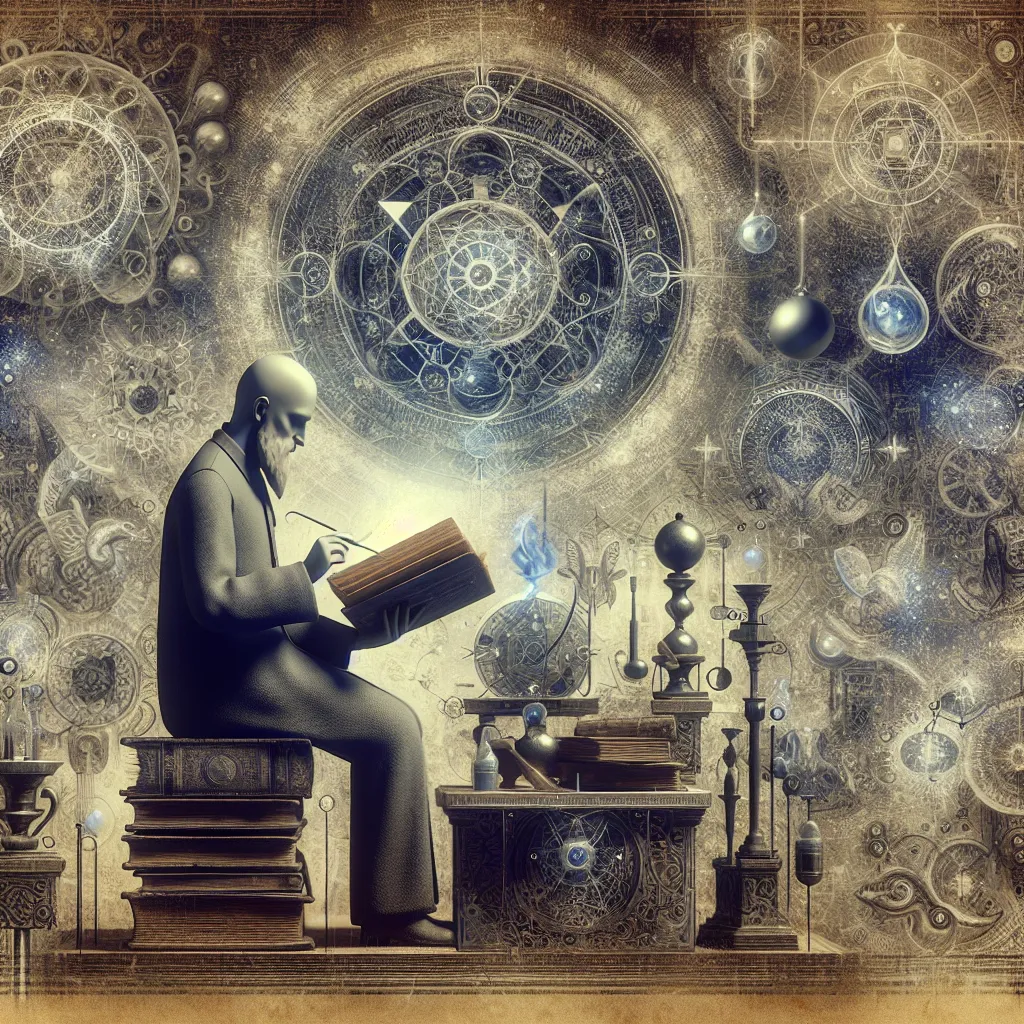
- Published on
- Authors

- Name
- You
Introduction
Aleister Crowley, often dubbed "The Wickedest Man in the World," is a central figure in modern occultism. Among his many controversial teachings, sex magick stands out for its provocative blending of erotic and mystical experiences. This article will explore Crowleys principles of sex magick, its significance in his broader magical system, and the resulting historical and cultural impacts.
The Foundations of Sex Magick
Sex magick, as described by Crowley, is the practice of using sexual energy towards magical and spiritual goals. But it is not just carnal pleasure—it's about harnessing the potency of sexual acts to transform consciousness and manifest will.
Crowleys Theories
Crowleys approach to sex magick can be summarized through several key principles:
The Magical Will: Central to Crowleys Thelema is the concept of True Will. Sex, within this framework, becomes a powerful method to align oneself with one's True Will.
Symbolic Acts: Sexual acts are infused with symbolic meaning, representing various spiritual and mystical truths. For instance, the union of male and female energies is seen as a microcosmic enactment of the union of opposites.
Energetic Transmutation: Similar to tantric practices, Crowley believed in the transmutation of sexual energy into spiritual energy. This process, when performed with intention and ritualistic fervor, can lead to enlightenment and psychic empowerment.
Sex Magick in Practice
Crowleys sex magick was not a singular doctrine but a collection of practices which could vary in complexity. Below is an outline of a basic sex magick ritual inspired by Crowleys teachings, emphasizing the importance of mental focus and symbolic imagery.
Preparatory Steps
- Ritual Cleansing: This may involve a bath or meditation, preparing the mind and body.
- Altar Setup: Arrange an altar with symbolic items such as candles, incense, and a representation of your magical goal.
- Visualization: Focus on the desired outcome or goal of the ritual.
Ritual Procedure
| Step | Action |
|---|---|
| Invocation | Recite an incantation or prayer to invoke desired energies or deities. |
| Focal Point | Engage in the sexual act while maintaining mental clarity on the goal. |
| Climax | At the moment of climax, both physical and spiritual, strongly visualize the manifestation. |
| Grounding | Post-ritual, perform grounding exercises to absorb and dissipate excess energy. |
| Reflection | Meditate on the experience and its emotional and energetic effects. |
Criticism and Cultural Impact
Controversy
Crowleys sex magick has sparked significant controversy over the decades:
- Ethical Concerns: Critics argue that Crowleys practices sometimes bordered on exploitation.
- Cultural Misunderstandings: Many of Crowley’s graphic descriptions were misunderstood or sensationalized by the media, painting a distorted picture of his actual practices.
Influence on Modern Occultism
Despite—or perhaps because of—its controversial nature, sex magick has influenced contemporary spiritual and magical practices significantly:
- Integration in Modern Witchcraft: Many modern followers of Wicca and other pagan traditions incorporate elements of sexual energy work.
- Psychological Insights: Crowley’s fusion of psychology and mysticism prefigures modern sexology and New Age energy healing.
Conclusion
Aleister Crowley’s sex magick remains one of the most debated aspects of his teachings. By understanding its theoretical foundations and practical applications, we can appreciate its role in both historical and modern mystical contexts. Whether seen as pioneering or perilous, Crowley’s sex magick endures as a provocative embodiment of the esoteric pursuit of divine union.
Further Reading
- "The Book of Lies" by Aleister Crowley
- "Sexual Alchemy" by Donald Tyson
- "The Magical Diaries of Aleister Crowley: Tunisia 1923"
References
- Crowley, A. (1913). The Book of Lies. Weiser Books.
- Sutin, L. (2020). Do What Thou Wilt: A Life of Aleister Crowley. St. Martin's Griffin.
- Hutin, S. (2004). History of Esotericism. HarperCollins.
